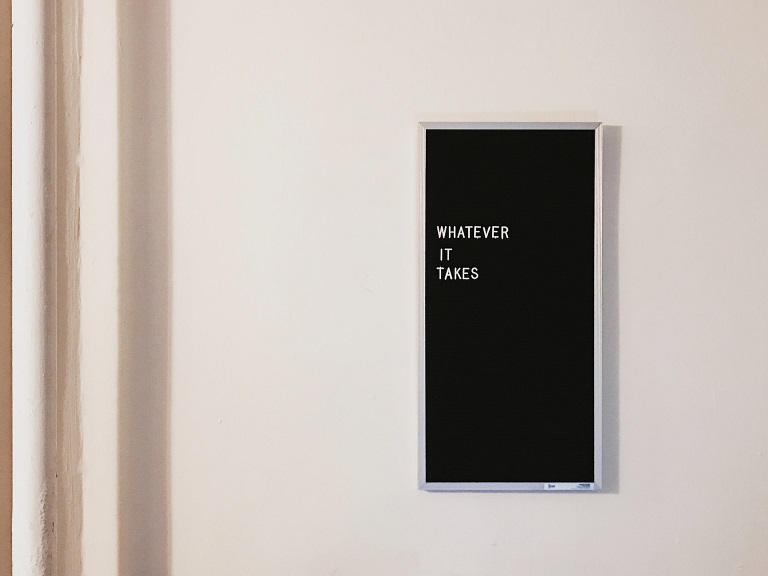What Is Residential Drug Rehab?
Inpatient treatment, also referred to as residential treatment, provides the highest level of rehab services for clients detected with alcohol or other drug addiction. Normally, inpatient drug rehab programs consist of medical detox and integrated mental health services. With your permission, rehab staff may also talk with your relative and speak with specialists you may currently be working with to address your needs and obstacles. Because addiction is an illness that affects your body, mind and spirit, a multidisciplinary team is united to provide you with a holistic healing plan. Your licensed staff member for residential treatment might consist of:
- Physicians
- Nurses
- Psychiatrists
- Psychologists
- Accredited marital relationship and family therapists
- Accredited addiction counselors
- Nutritionists
- Health and physical fitness professionals
- Continuing care coordinators
- Monetary advocates
- Scientific case supervisors
All set to take the next action?
Call (866) 503-4950 today and our group of recovery professionals will determine the most efficient drug abuse treatment programs and services to assist you reclaim your life from addiction.

The Benefits of Residential Drug Rehab
Residential rehab, and many types of inpatient rehab, use specific benefits that other types of treatments might not always offer. A few of these benefits consist of:
- The capability to detox in a safe and secure environment offering 24/7 care and support.
- The ability to work through drug abuse issues, codependency, co-occurring disorders, and trauma in a safe and safe environment.
- Numerous therapies.
- A tight-knit community with whom to process all phases of substance abuse recovery.
Regardless of the large amount of advantages that residential rehab offers, all forms of substance abuse treatment show useful for those wanting to recover from drug abuse concerns. To learn more about different inpatient and residential treatment programs near you in Clyde, New Jersey, call: (866) 503-4950
Inpatient Vs. Outpatient Rehab in Clyde New Jersey
Inpatient And Outpatient Addiction Treatment
Drug and alcohol treatment programs usually fall into 1 of 2 classifications– inpatient or outpatient rehab. While similarly focused on rehabilitation, each type has special characteristics and advantages to provide. Inpatient rehabs are intensive, residential treatment programs designed to treat severe dependencies. Outpatient rehabs are part-time programs, permitting the recuperating user to keep going to work or school throughout the day. It is essential that both the specific with a substance use disorder (SUD) and their loved ones comprehend the differences prior to choosing an inpatient or outpatient treatment program. Exploring all options prior to deciding can put you or a loved one on the road to recovery long-lasting sobriety.Inpatient Rehab And Treatment
Inpatient recovery programs, also known as residential treatment, need patients to inspect themselves into a regulated environment to overcome their dependencies. Patients remain at a clinic with 24-hour medical and emotional support.Preparing For Inpatient Rehab in Clyde
It is essential to effectively prepare for rehab. There’s no set quantity of time needed to prepare for treatment. It is essential to set an entry date for rehab and to have actually affairs settled prior to that date. Some of the things to look after before entering rehab consist of:- Speaking to your employer
- Finding living arrangements for children or other relative
- Planning how to get to and from the recovery center
- Discovering what personal items are permitted
Family Assistance And Contact In Inpatient Rehab
Successful inpatient centers know family participation is essential to recovery. Member of the family can get in touch with loved ones in residential treatment to supply emotional support and encouragement. When it comes to how and how frequently citizens can communicate with their loved ones, each inpatient center’s policy is various. Some rehab centers also offer therapy for the family of the person in treatment.Daily Life During Inpatient Rehab in Clyde, NJ
Throughout inpatient treatment, locals are able to completely focus on recovering and sober without the distractions of daily life. A typical day in residential treatment is thoroughly arranged and represented. Psychologists, counselors, and psychiatrists meet with clients separately and in group settings to guide inpatient recovery. A typical residential program runs anywhere from 28 days to 6 months. The initial step in inpatient treatment is medically assisted detox. Physicians and addiction specialists keep track of patients’ vital signs while the drugs leave the system. Drug cravings are common throughout detox and can be tough to overcome, often leading to regression. Continuous medical care supplied throughout inpatient treatment helps guard against relapse. Clinicians can offer needed medication and medical know-how to reduce cravings and withdrawals. The brain responds in a different way to different addictive compounds over time and a course of regular use. Withdrawal symptoms aren’t pleasant for any drug, but some drugs should never ever be quit without medical supervision. Some withdrawals can be deadly. Lethal withdrawals are connected to drugs like artificial Opiates, Benzodiazepines, alcohol, and Heroin. During inpatient rehab, patients have access to 24-hour medical attention. This attention can mean the distinction in between regression and recovery.Outpatient Rehab And Substance Abuse Treatment
Outpatient drug rehab is less limiting than inpatient programs. Outpatient recovery programs typically require 10 to 12 hours a week spent visiting a regional treatment center. These sessions concentrate on drug abuse education, private and group counseling, and mentor addicted individuals how to cope without their drug. Outpatient drug rehab can be an excellent standalone choice for someone with a mild addiction, or it can be part of a long-term treatment program. Outpatient drug rehab can last 3 to 6 months– something comparable to inpatient treatment– or over a year.Outpatient Detox Programs in Clyde
Patients with mild-to-moderate drug withdrawal symptoms might discover outpatient cleansing a fitting option to residential detox. Outpatient detox is safe, reliable, and takes less time to finish than inpatient detox; the average outpatient detox is 6.5 days. Patients need to check out a hospital or other treatment facility for physical and mental check-ups throughout outpatient detox. Clinicians or physicians may administer medications on-site to soothe withdrawal signs like stress and anxiety, anxiety, and increased heart rate.How Does Detox Work?
Detox is the first step in helping your brain and body recover from drug abuse. The detox process starts with assessments by medical physicians and nurses to identify which, if any, medical interventions are needed. Detox is mainly a time to flush the chemicals from your body, which can be an uneasy experience without the best treatment to help reduce discomfort and/or drug yearnings. Medical staff will deal with you to evaluate your level of discomfort and offer you with medications, if required, to deal with any discomfort or yearnings. During the detox process, you will be medically kept an eye on 24/7 till medical staff determine you are stable adequate to take part in rehab programming and activities.Social Support in Clyde Throughout Outpatient Rehab
Outpatient drug rehab allows those in recovery to stay at home throughout treatment. Those going through outpatient drug rehab can continue working and remain near friends and family. Outpatient treatment centers usually carry out conferences at night or in the early morning, helping those in the program maintain their regular schedules. Twelve-step groups like Twelve step programs (AA) and Narcotics Anonymous (NA) might be used as part of outpatient treatment. Studies show that participating in recovery groups like AA and NA assists recovering addicts stay sober. Many people with a substance use disorder (SUD) also rely on outpatient treatment after completing an inpatient program as part of their continued recovery.Inpatient treatment programs usually cost more than outpatient drug rehab. The on-hand medical care and psychotherapy available to residential rehab patients increases treatment costs. The cost distinction should not motivate or dissuade somebody from selecting the best treatment path for them.
Just How Much Does Residential Drug Rehab in Clyde Cost?
The cost of inpatient rehab programs depends upon the treatment center picked, the level of clinical care suggested, and the length of time in treatment. The quantity you pay will likewise depend upon whether you have the ability to gain access to insurance benefits to assist cover the cost or you’re paying out-of-pocket. Most treatment centers are in-network with a lot of insurance providers, and the majority of patients use their health insurance benefits to help cover treatment expenses. Insurance coverage and benefits differ considerably, so it is very important to contact your provider about coverage specifics in your case. Some clinics use client financial help funds, on a minimal basis, to help offset the cost of addiction treatment for qualifying clients – please call (866) 503-4950 today to ensure you certify.Residential Drug Rehab Clyde New Jersey?
Your first step is to call our friendly assistance group on (866) 503-4950 for a confidential phone assessment. You will talk with a recovery specialist who will identify whether drug or alcohol treatment is required and, if it is, will recommend the proper level of care and work with you to coordinate insurance benefits. If alcohol or drug addiction is not clearly suggested or if you’re not prepared to commit to an inpatient stay, you can take advantage of other services such as mental health sessions, coaching, view a webinar, or listen to a podcast to get more info or to get inspiration.Whatever The Choice, Recovery Is Around The Corner
No matter which treatment choice in Clyde you choose for you or a loved one, rehab can alter your life. Addiction is a chronic health problem, and recovery is a lifelong process. Doctor, mental health counselors, and neighborhood groups like AA can teach the necessary abilities to avoid regression. Take the primary step toward recovery and contact a treatment provider today.Prepared to take the next step?
Call (866) 503-4950 today and our group of recovery professionals will figure out the most effective substance abuse treatment programs and services to assist you reclaim your life from addiction.

